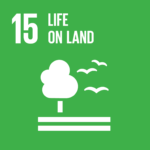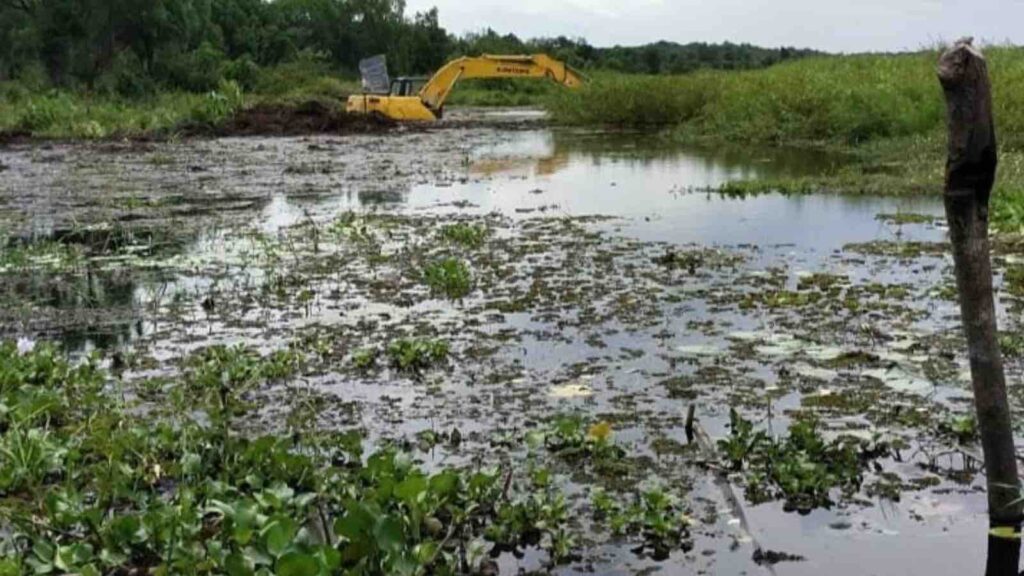Freeing the wetlands would not only increase community income but also protect these vital ecosystems from degradation and conversion, which impacts water management.
MENANG RAYA, Indonesia — Facing a looming water crisis exacerbated by climate change, a village on the island of Sumatra is taking an innovative approach to preserving its dwindling water sources: revitalizing a local wetland.
The village of Menang Raya, in the Ogan Komering Ilir regency of South Sumatra province, sits on peatland that has suffered from drainage and conversion to plantations in recent years, leaving it vulnerable to drought and fires during the dry season.
RELEVANT SUSTAINABLE GOALS



The water crisis not only affects the daily needs of the residents for drinking, bathing and washing, but also impacts agriculture, especially rice fields,” said Rian Syaputra, the village head. “If we don’t take action soon, Menang Raya may lose access to water within three years during the dry season.”
Reviving Lebak Petai Kecik Wetland
The solution, officials say, lies in restoring the Lebak Petai Kecik wetland, a 66-hectare swamp area surrounded by rubber plantations and villages. The village government plans to divide the wetland into three zones: a free fishing area for residents, an aquaculture zone managed by the village enterprise, and a conservation area for preserving peat swamp vegetation like purun danau, a reed used for weaving handicrafts.
“By making the wetland an economic resource, the community will have an incentive to protect it from being converted into plantations,” Mr. Rian said. The wetland not only provides surface water but also recharges the groundwater that supplies the village’s wells.
However, reviving Lebak Petai Kecik faces a significant obstacle: the area is currently part of a regional auction system for wetlands called lelang lebak lebung, which grants private companies exclusive fishing rights.
“We’ve tried to remove Lebak Petai Kecik from the auction, but haven’t succeeded yet,” Mr. Rian said. “For now, we’re relying on the auction winner allowing villagers to fish freely in certain areas.”
Jimi, a 48-year-old resident, expressed hope that the wetland would be freed from the auction system, which he said provides little economic benefit to villagers. “When I was a child, everyone could freely fish and gather resources there,” he said. “After the auctions started, people were afraid to do those activities for fear of breaking the law.”
Ryllian Chandra, a political scientist at UIN Raden Fatah Palembang who studies water governance, argued that abolishing the wetland auctions is crucial for mitigating the threat of water scarcity.
“The auctions only provide economic benefits to the regional government,” he said. “Freeing the wetlands would not only increase community income but also protect these vital ecosystems from degradation and conversion, which impacts water management.”
As climate change intensifies droughts and water shortages worldwide, the struggle playing out in Menang Raya underscores the need for communities to safeguard their natural water sources not just for immediate survival, but for long-term resilience.
Lead image courtesy of Sriwijaya Media



